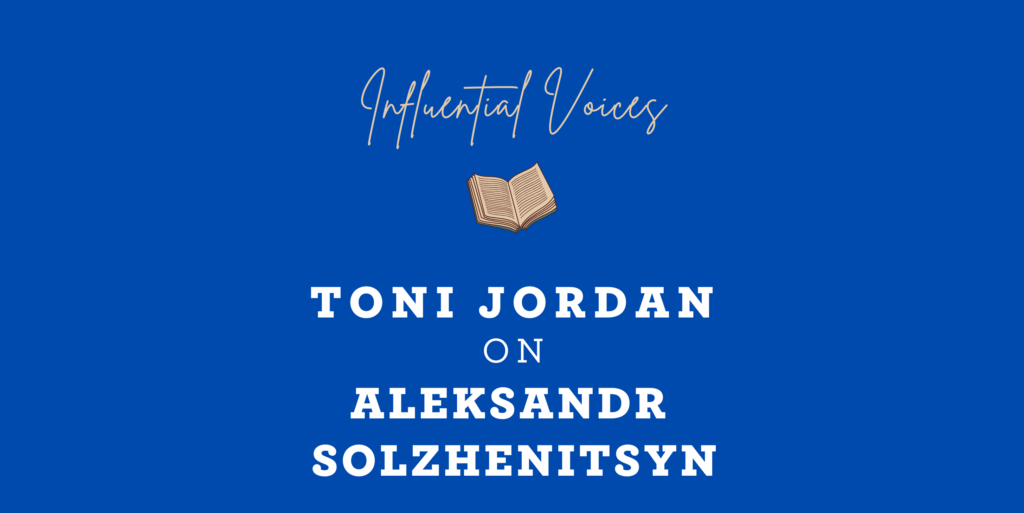
On Christmas morning when I was 15, I found a huge wrapped box under the tree. It was a present from my mother and it was full of books. My mother wasn’t a great reader but she was an enthusiastic enabler of my burgeoning addiction: driving me to the library once a fortnight and waiting while I painstakingly chose my fix; handing over money whenever the school had a book drive.
This Christmas present, though, was beyond brilliant. I don’t know how she chose the books in the box. She hadn’t read any of them, but it was the best present I’ve ever had, before or since. Among my first Austen, Conan Doyle, Bronte and Fleming was a slim volume by a writer I’d never heard of whose name I couldn’t pronounce. It was One Day in the Life of Ivan Denisovich, by Aleksandr Solzhenitsyn.
As soon as I’d read it, I searched out Solzhenitsyn’s other books. I’ve read The Gulag Archipelago, August 1914, The First Circle and his play, The Love-Girl & the Innocent. They’re all remarkable in their own way, but it’s One Day I return to, year after year.
At age 15, I didn’t have the smallest ambition of becoming a writer but now, more than 30 years later, I can see how One Day has influenced my work. Don’t misunderstand: I’m not comparing myself with a Nobel Laureate. I’m not completely insane. In my own novels there are, however, echoes of the things that moved me so deeply all those years ago.
The first is Solzhenitsyn’s focus on minutiae. Ivan Denisovich, a prisoner in a Soviet gulag (as was his creator), lives a very small, controlled life. His concerns never feel petty, though.
Would they feel that piece of bread in the mattress? Would he have any luck at the sick-bay that evening? Would they put Buinovsky in the cells? And how did Tsezar get his hands on that warm vest?
These tiny things are all vitally important to us, the reader, because they’re crucial to Ivan Denisovich. They’re also intensely revealing. These details, written in plain prose with heart- rending restraint, are the stuff of his life. They show us Denisovich’s character and the intricacies of the system he lives under more effectively than any scholarly analysis of political prisoners under Stalin. This is the beauty and the power of fiction. By aiming straight for the heart and exercising our empathy muscles, fiction can change minds and attitudes in a way that non-fiction, with its entry through the intellect, cannot.
The writing is utterly without self-pity or sentimentality, both of which I abhor in fiction, and despite the horror of Denisovich’s life and its factual basis in Solzhenitsyn’s, I find it the most cheering book in my library. I defy anyone to read it and not feel lucky and grateful for the smallest things: running water; clean sheets; warm air; the touch of someone else’s skin; books. In the middle of our busy lives, it’s easy to forget that most of us — we who live in this country, at this time, above the poverty line — are among the most privileged people of all time. It’s hard to read One Day and whine about a rejection or missing the tram. I’ve been known to recommend it as an anti- depressant to people who understand the way fiction can change your state of mind.
My original One Day in the Life of Ivan Denisovich fell apart years ago. I think I’m up to my third copy. I envisage going through a few more before I’m finished with it.
About the Writer
Toni Jordan has written three novels. Her debut, the international best-seller Addition, has been published in 17 countries. Nine Days, won the 2013 Indie Award for Best Fiction.
